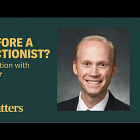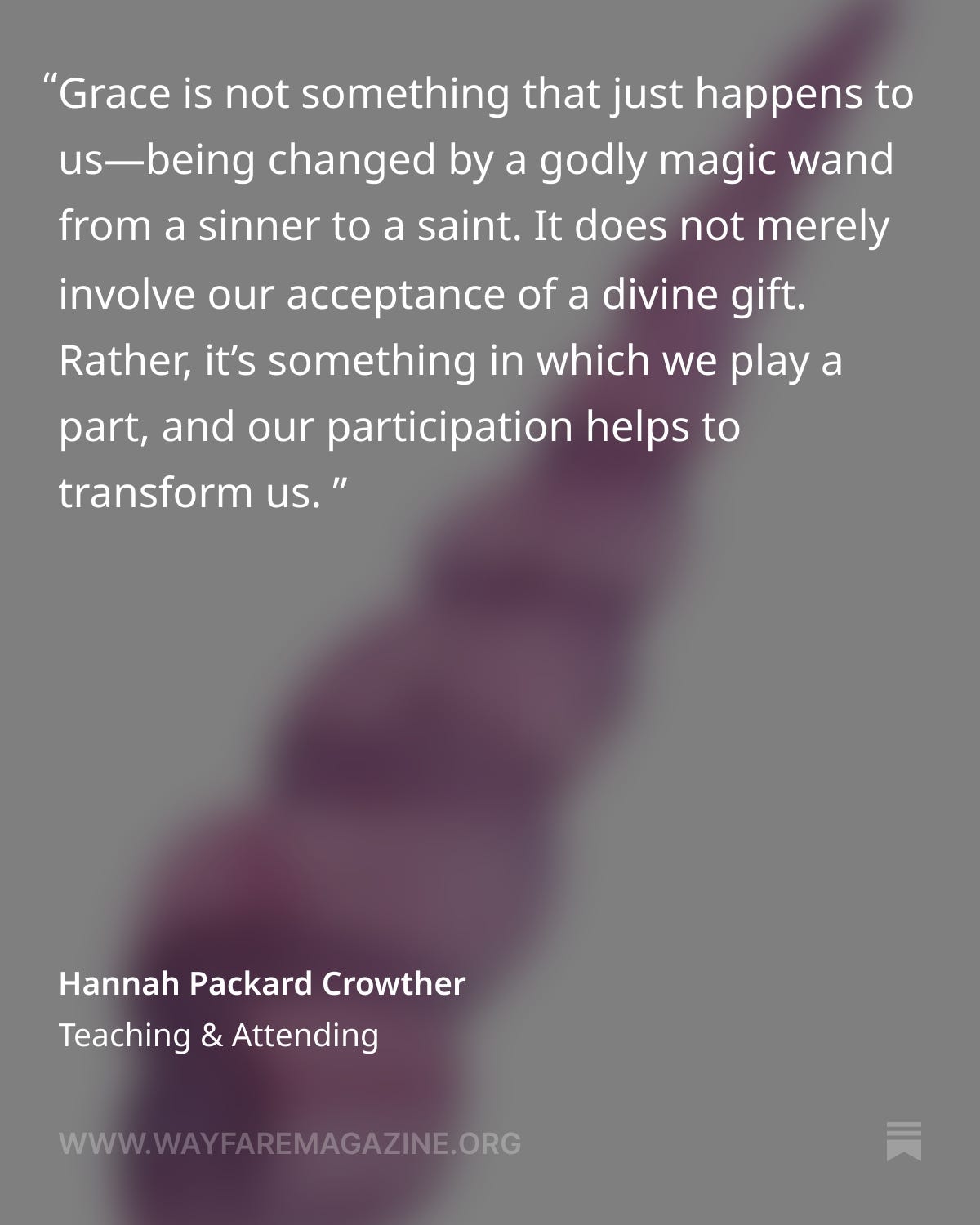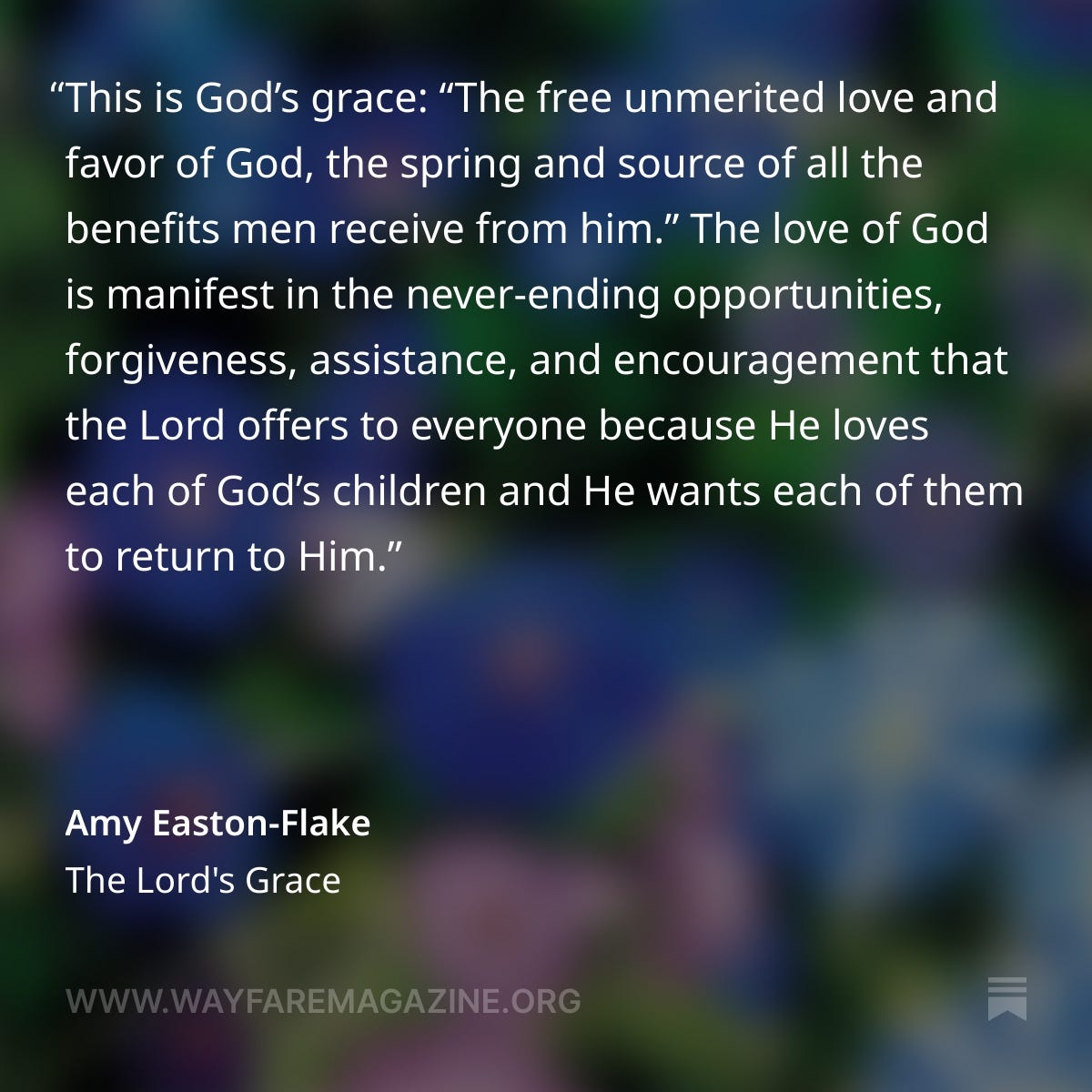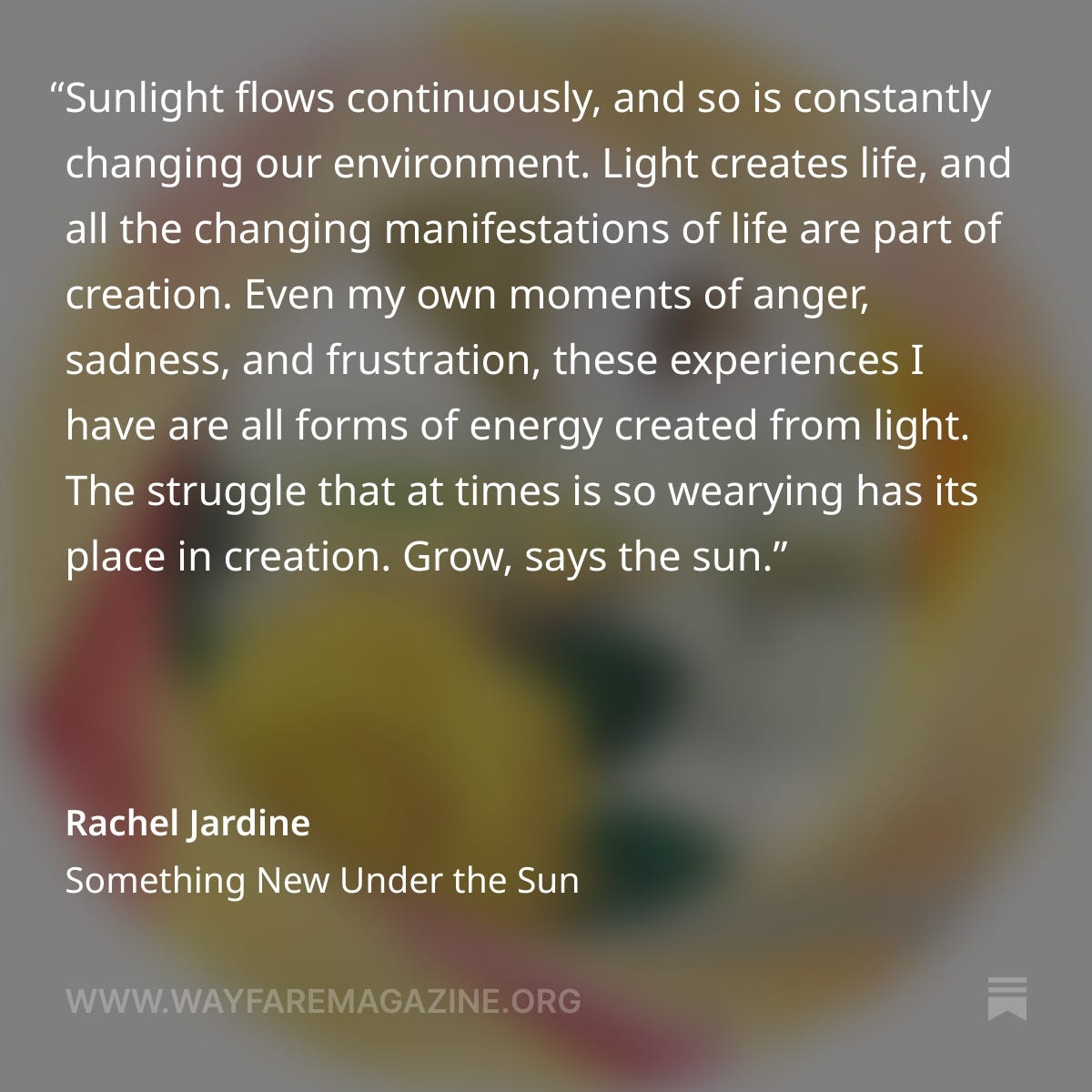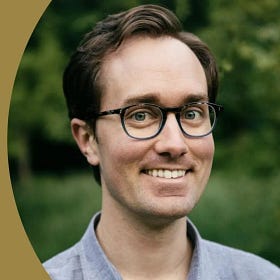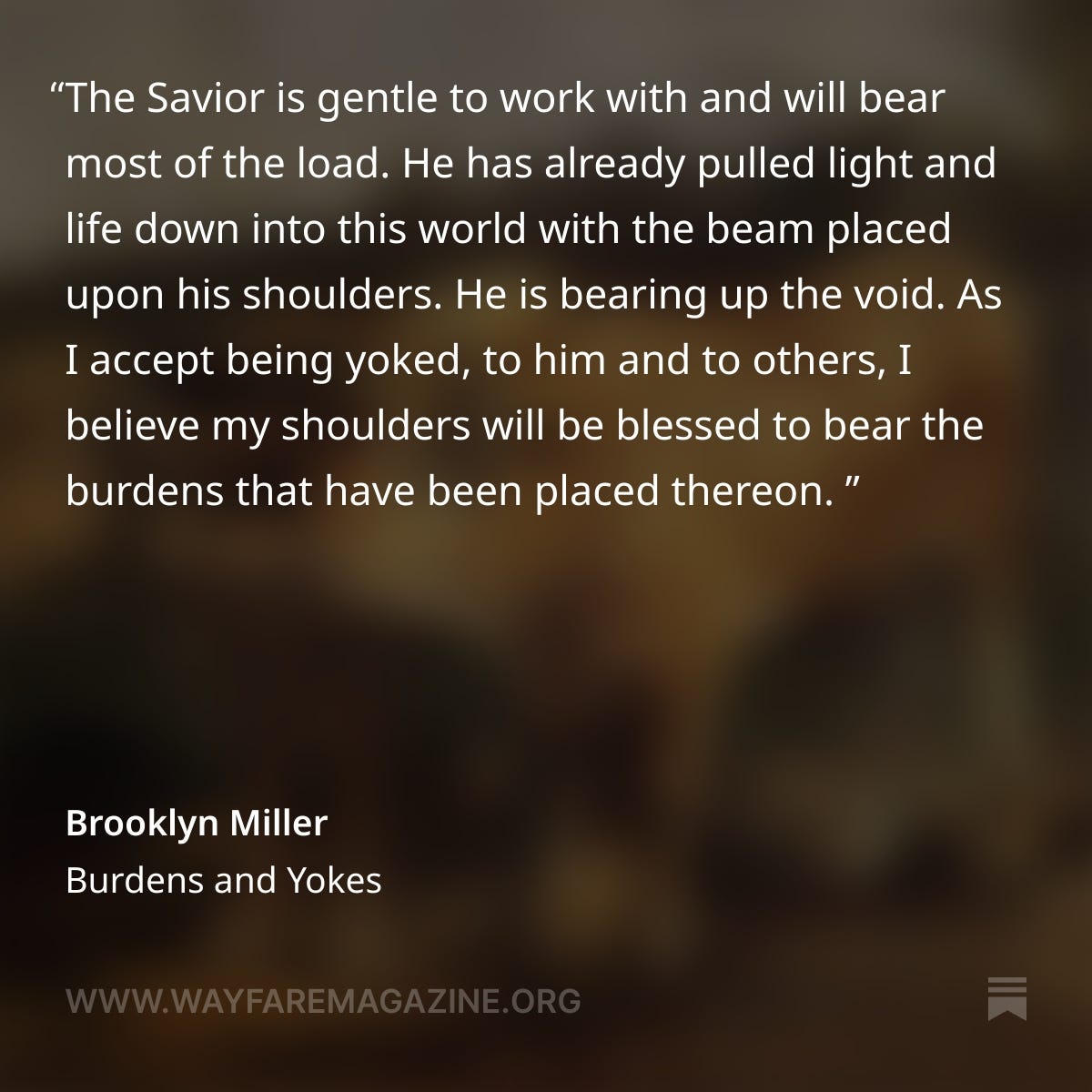What does it mean to receive further light and knowledge?
Faith Matters resources to accompany your Come Follow Me study: August 25-31
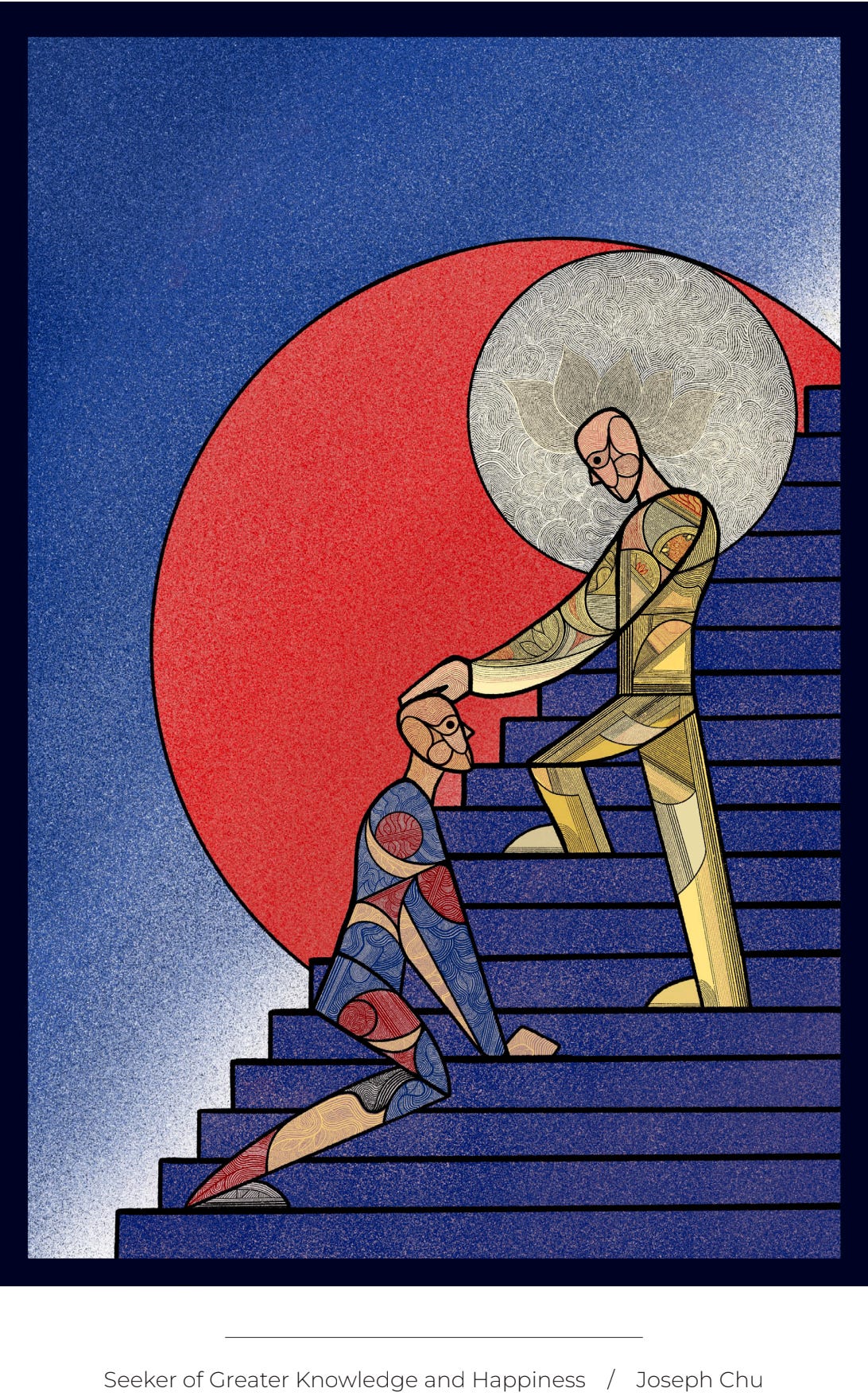
Like Jesus Christ, I can be glorified and receive God’s “fulness.”
There's a great statement you find in almost all the church fathers: Deus fit homo, ut homo fieret Deus. “God became human, that we humans might become God.”
It's a staggering claim that God became one of us so that we lowly humans might become divinized. How is that possible? Because God's not competitive with us. He's not a supreme being who exists in an antagonistic relationship with creation. In Jesus, divinity and humanity come together without mixing, mingling, or confusion in mutual harmony. That's the grounds of Christian humanism, and I would argue there's none that could be greater than that. There's no aspiration higher for humanity than divinization.
So much of modern philosophy is predicated upon that view of a competitive, overbearing God who is a threat to human freedom and human flourishing. I say: that's an idol, a false God. Rather, the proper understanding of God gives rise to the sweetest sort of humanism. My hero here is St. Irenaeus of Lyon, the great second-century church father. He said, “The glory of God is a human being fully alive.” God glories in our being fully human.
—Bishop Robert Barron, "The Glory of God"
The glory of God is light and truth.
“Set in order your own house.”
My 10-year-old granddaughter was practicing the piano one day when I stopped by for a visit. I listened for a minute and said “you are getting good!” I listened for another minute and asked “What is your goal?”
Proudly, she said “To practice for an hour every day.”
Her answer suggested that she, like so many of us, was not clear on the difference between a goal and a plan—between the end and the means. I tried to explain that a goal was a destination—something you want to get to, or complete, or become; and that a plan was what you do to get there. With that simple explanation, she decided that her goal was to be able to play all of piano book 3, and her plan was to practice for an hour every day.
Why does it matter? Because if the plan is thought of as the goal, we can become mechanical—just going through the motions, doing our duty, putting in our time, being “active.”
The clearer our long-range goals are, the better the target they provide for our shorter-range goals and for our plans. If we know the end, we can find the means. The beauty of the Restoration is that it explains, to the degree that we can understand it, our longest-range goal of Exaltation, which then guides our plans and actions. And the beauty of the atonement is that it compensates and makes up for the great gaps between where we want to go and where we can get ourselves.
…
Not long ago, Faith Matters interviewed a large group of millennials and asked them what they meant when they said “the Church.” In essence, most of them gave what we will call paradigm-one answers: “The institution . . . the Brethren . . . that headquarters in Salt Lake . . . those that tell us what to do and how to live.”
When we shift to paradigm-two, the Church becomes a nurturing and revealing community, the support, the scaffolding—imperfect in its human administration but sweepingly spectacular in its revelation—a helper, a facilitator, a means that helps us to do what is required in order to become who we should be and to reach the family end that God wants for us and that Christ has made possible.
…
In this view, the Church is a support and guide for our families. It provides a culture that can supersede worldly cultures. It is a path of powerful covenants that help us to make good choices and remember who we are. It is a gift from a loving Father, and a series of revealed, restored insights which come to us through imperfect but striving and inspired leaders. It is a beacon that can enlighten, motivate and steer us toward God and God’s goals, and it is a catalyst and combiner of all truth everywhere.
Paradigm-two does not, in any way, lessen the Church or diminish its importance or that of its called leaders. The Church is the Kingdom of God on earth, and it is led by prophets, and it is what we need here, now. As the Doctrine and Covenants says, “…may it go forth, that the Kingdom of Heaven may come.”
—Richard Eyre, “Becoming the Family of God”
Jon Ogden: Cultivating a Child's Inner Compass
As parents, how can we help our children find and cultivate their inner compass? We often do a pretty good job of giving our kids an idea of what God and others expect from them. But nurturing an enduring love of things like truth, beauty and goodness and helping them engage their world from a deep sense of their true identity is the great challenge of parenting. How can we help our children become a beautiful expression of their spiritual natures?
Jesus Christ is the Light and Life of the World.
Christ’s gospel, like his love, brings wholeness. During times when discipleship feels dark, or when questions loom large, the brother of Jared shows me how to capture the light of Christ’s love by taking his invitation seriously to come up with solutions to provide light in dark barges. The brother of Jared went to work making clear white stones out of molten rock. This involved no small effort to melt down and refine rock to clear glass—incredible heat, pressure, and time to make those sixteen little stones. Then the brother of Jared took those stones that still did not give off any light by themselves (even after all that work!) and made the trip up the mountain to ask the Lord to touch those stones and make them shine.
And shine they did.
Consecrating who I am as a disciple of Christ can be very hard work, at least as difficult as refining down rock into clear glass. But when I bring my stone of discipleship to Christ, asking him to bless my efforts, his light, through my offering, shines brighter.
—Christopher John Bissett, “Light in a Watery Darkness”
I lived with Heavenly Father before I came to earth.
Everything begins in hope. All that the Gods voiced, every hopeful “And God . . .” is followed by “. . . and it was good.” What was good was that our Heavenly Parents created a world, and in that world a garden, a garden of hope for a future of fruitfulness and fecundity, of hope for a beginning where love would expand, flow outward to fill the universe, and overflow the bounds of space. And into this garden with infinite hope and love they placed our first parents, and they called it the Plan of Happiness. As premortal beings looking down from the heavens on that beginning, our hearts were filled with boundless, borderless light and love and with immense hope for what it all meant for us.
—Bob Reese, “"A Perfect Brightness of Hope"
I receive light and truth as I obey God.
One word that Christianity often employs as code for “the imitation of Christ” is “obedience.” Obedience, like imitation, rubs against the grain of contemporary culture. It has all those connotations of authoritarianism, inauthenticity, and robot-like conformity. In this regard, I have found the words of Timothy Radcliffe to be a powerful corrective to the cultural baggage of obedience. “The obedience of faith,” he writes, “is more like listening expectantly to a Beethoven string quartet than to obeying a police officer. It’s a response to the authority of its meaning.”5 No one compels us to love the music of Beethoven or a sonnet by Shakespeare. If we are attentive and open, susceptible to its beauty and power, then we respond to its sway over us. It washes over us, draws us toward a recognition of the rightness of this experience so far beyond the cacophony of traffic or the tedium of our own voices. The parallel is not perfect but it is close. We are drawn to Christ to love and imitate and yes, obey, because his love is non-coercive, his tenderness matchless, his every interaction with his friends and strangers the ideal of how any one of us can be most fully alive and responsive in this world of human relationship.
—Terryl Givens, “Beethoven and Jesus”


